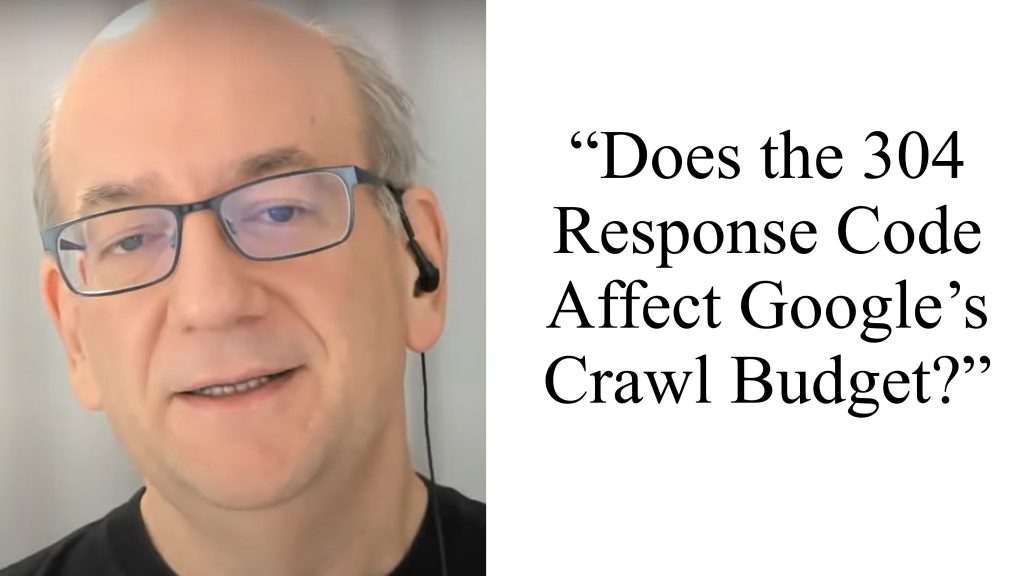
If you’re not sure what a 304 Not Modified response code is, I’ll try to give you an illustration.
So, that’s it, basically.
At the 11-minute, 48-second mark of the English Google SEO Office-Hours From December 10, 2021, Google’s John Mueller was asked about this. The video below is queued to the spot where this subject was asked about.
(Below, I’ve tried to transcribe the pertinent parts of this segment, making slight edits for clarity.)
A participant explained her situation and asked:
“So another question is about the 304 response code.
“Do you think the 304 response code affects crawling? Because logically if we think if Googlebot checks a URL with the same content and it returns 304 code first time, maybe there’s a possibility that Googlebot may reduce the crawling for the same URL because it returns to the 304 code.”
John Mueller replied:
“So I think there are two things. So the 304 is, I think, in response to the “if modified since” requests where Googlebot tries to see if this page has changed. And my understanding is that a 304 response code would not apply to the crawl budget side of things.
“So that basically means for us, we can reuse that request and crawl something else on a website. So there’s that aspect.
“And the other aspect with regards to crawling that specific URL less, I don’t think that would be the case. But we do try to figure out how often pages change and we try to recrawl pages based on the assumed page frequency or update frequency that we have.
“So it’s not so much that those particular URLs would get crawled less frequently, it’s more that, ‘Oh, we understand a bit better how often these pages change.’
“And then based on that, we can update our refresh crawling a little bit.”
The participant then asked:
“So, if most of the pages on the site return a 304, maybe it’s a signal for Googlebot that the site has no new updated content, so to maybe reduce the crawling rate?”
To which, John replied:
“No, I don’t think so. I don’t think we would reduce the crawling rate.
“We would just try to focus more on maybe the parts where we do see updates happening. So I would definitely not artificially hide the 304s in the hope that it improves the crawling.”
So, there you have it: 304 response codes can be good for saving bandwidth (due to the caching I mentioned) and managing crawl budget.